Happy Tuesday! In normal times, Dispatch Politics is a M/W/F affair. But these are indictment times, and we didn’t want to let the avalanche of Trump news bury our interview with presidential candidate and former New Jersey Gov. Chris Christie, who stopped by the Dispatch office for a lengthy editorial meeting last week.
Expect more of these in-depth conversations with presidential contenders in the months ahead.
The Race, According to Christie
The Republican presidential field may be getting crowded, but Chris Christie’s assessment of the race is straightforward: “The Republican primary is about Donald Trump.”
“It’s not about me. It’s not about Ron DeSantis. It’s not about Mike Pence. It’s about Donald Trump,” Christie says. “If you don’t take Donald Trump on directly, there is no path to winning.”
It’s a lesson won through hard experience for Christie, who was first steamrolled by Trump back in 2016. The former governor along with Jeb Bush, Marco Rubio, John Kasich—“we all got sold a bill of goods,” Christie says of that contest. “You’re the establishment lane. You guys fight it out and—like it’s the NCAA tournament—whoever wins there is gonna advance to the next round.”
He continued: “Guess what? By the time we got done kicking the hell out of each other, he’d won the nomination already. Not making that mistake this time.”
What Christie currently lacks in popular support—he’s polling at just 1 percent both nationally and in his first firewall state, New Hampshire—he hopes to make up in clarity of purpose. A former U.S. attorney, Christie used a town hall in the Granite State last week not only to announce his candidacy but to prosecute the case against Trump. In media appearances since, including his interview with The Dispatch, he has continued to take aim at what he sees as Trump’s failings. (This has only intensified since our conversation: In a CNN town hall Monday night, Christie decried Trump’s conduct as laid out in his recent federal indictment as “vanity run amok.”)
“He’s not going to change,” Christie says. “He’s only gotten worse. I’ve known every president since Bush 41 personally. Every one of them, in my opinion, came out of the presidency a better person than when they walked in. Regardless of whether I agreed with their policies or not, I think the presidency made them more serious, more humble, better people—except for him.”
Christie’s bet is that, by keeping himself in the midst of the contest’s main conversation, he can outpunch some of the other also-runners and consolidate the GOP’s remaining Trump skeptics.
“Earned media now is even more important than it ever has been,” Christie explains. “Why were 50 media people in Manchester on Tuesday night for a guy polling at 2 percent? I would argue to you that the reason they’re there is because … they were pretty confident that I was gonna say something that their listeners, readers were gonna find of interest and that they were gonna find of interest.”
One wrinkle in that plan: the Republican National Committee’s requirement for all candidates to pledge to support the eventual nominee in order to qualify for primary debates. Christie is already on record saying he would refuse to vote for Trump again. (Nor, for that matter, would he support President Joe Biden.) But he says he’d sign the pledge to get on stage—with a caveat.
“I said to [RNC Chairwoman] Ronna McDaniel the other day that it’s ridiculous to ask a group of candidates to blindly endorse a nominee who—we don’t know who it is—but we know it could be somebody who might be into three separate indictments,” Christie says. “I’ll take the pledge as seriously as Donald Trump took it in ’16.”
Christie at Home
In Christie’s telling, the next Republican president will need to be willing to “go big” on a host of domestic-policy issues. Social Security teeters on the brink of insolvency; Christie, pointing to his hard-nosed budgetary management in New Jersey, says he’s up to fixing it. He says he hopes to expand charter schools across America and create a federal tax credit for school choice—“there’s no other way to do this, to go around what the teachers unions are doing across the country.” And he says he would make “drug treatment much more available across the country than it is.”
“We have a significant drug problem in this country,” Christie says. “It may start as a moral failing in some places, but what it evolves quickly into is a disease that needs to be treated and can be successfully treated—not only with talk therapy, but with medically assisted treatment. We should be having a big national discussion about how we deal with that instead of always pretending that it’s something else.”
Much of this is in keeping with Christie’s image as an old-school Republican, but he breaks with former orthodoxies in one major way: He thinks the time has come to ditch the Section 230 liability shield that protects social media sites and other tech companies from facing lawsuits over content posted to their platforms.
“I think it was a fine idea when Mark Zuckerberg was running Facebook out of a rented house in Palo Alto,” Christie says. “In case we haven’t noticed, he’s not doing that anymore. And so the idea that companies that are worth hundreds of billions of dollars need liability protection while other companies that are worth hundreds of billions of dollars don’t get it—I think it’s ridiculous.”
(It’s worth noting that it isn’t only big companies that get liability protections under Section 230. Your Dispatch Politics correspondents try to keep impartial, but we also appreciate the laws that don’t let us get sued on the off chance a reader were to post something legally actionable in the comments.)
On social issues, Christie skews to the moderate flank of the current GOP. He says he is pro-life and was happy to see Roe v. Wade overturned but adds he believes the current Republican efforts to marshal support for a federal ban on some abortions is premature.
“I’ve been fighting as a lawyer, arguing with friends and family and others for years that Roe v. Wade was wrong, and there is no federal constitutional right, and this is a states’ issue,” Christie says. “And now all of a sudden I win that argument, and everyone’s like, ‘Okay, so what’s the federal government do now?’ Nothing. They should do nothing unless and until there’s a consensus built among the states about what should be done.”
And while he applauds some actions some Republican states have taken in the anti-woke department—he says he would have signed Florida Gov. Ron DeSantis’s Parental Rights in Education bill—his instinct here too is to defer to local control.
“I don’t believe that we should be teaching third graders transgender stuff,” he says. “Should we have that conversation? Yes, we should have a conversation, but not at the federal government. That should be happening at school boards all over this country. When did the Republican Party come to believe that all wisdom resided in the federal government—or even in state government?”
Christie Abroad
There’s a foreign-policy rift underway in today’s GOP, and the presidential field is no different.
“There is a fundamental decision that’s being argued in our party right now,” Christie says. “You have the Trump-DeSantis side of it, Vivek Ramaswamy on the side with them, saying, Ukraine’s really not our problem.”
That newer line of thinking often goes by the name “America First,” which Christie finds ridiculous: “No one is like for America Third,” he says. “You know, I’m for Belgium and Luxembourg one, two, then I’d like to go America third. Like, it’s stupid. Everyone’s for America first—it’s how does America get to being first?”
Republicans in the race are more united when it comes to China, with all arguing that the United States should work aggressively to contain China’s global ambitions. While claiming President Joe Biden’s weakness is emboldening Xi Jinping’s government, some GOP contenders have been vague about what their alternative approach would look like.
After prodding, Christie provided some specificity, beginning with this: If he had been president when China attempted to set up a signals intelligence spying station in Cuba, as reported Thursday by the Wall Street Journal, he would have reciprocated with similar American action. “You’ve gotta be able to go at something that is geographically equivalent to Cuba—Taiwan, yes—and set up the same thing,” Christie tells The Dispatch.
What other actions would Christie take to deter Chinese saber rattling? Tighten U.S. diplomatic and military relations with India; do the same with China’s neighbors in the Asia Pacific region, for example, Vietnam; and although the former governor remains committed to the “One China” policy in which the U.S. does not formally recognize Taiwan’s independence, he says dramatically increasing the lethality of the weapons Washington sells to the island nation might be necessary to get Beijing’s attention.
“There is a benefit to tying American actions, with respect to Taiwan,” Christie says, “to what they do … either aggressively, directly against Taiwan or against us.”
‘I Want to Live to See My Grandchildren’
In our conversation, Christie also opened up about a more personal subject: his weight, which Trump has already mocked online since Christie got into the race. It’s a longtime struggle for the former governor, who got bariatric surgery in 2013.
“I was my heaviest during Hurricane Sandy,” Christie said. “If you go back and look at the pictures of me during Hurricane Sandy—like, I’m frightened by what I looked like back then. It was by far the largest I was. And it was really that experience during Hurricane Sandy and me seeing myself that made me go and get surgery. And you know, I’m still today—I went back up a little bit, but I’m still today 70 pounds less than I was during Hurricane Sandy. Do you get any credit for that? You know, no. Like, it’s still the same joke.”
Still, Christie says that the attacks usually don’t bother him as much as they used to.
“I want to live to see my grandchildren. I want to walk my daughters down the aisle,” he said. “And that’s what motivates me to keep it under some measure of control, is the fear that I wouldn’t be able to. But I also know that when I say that and people read it, there are tens of millions of people in this country who read that and say, I know exactly what he’s feeling. And if that makes me more real to them, then that’s an advantage for me politically.”
Editor’s Note, June 13, 2023: An earlier version of this newsletter misstated a quote from Chris Christie. Christie was talking about Trump’s possible three separate indictments, not three separate endorsements.
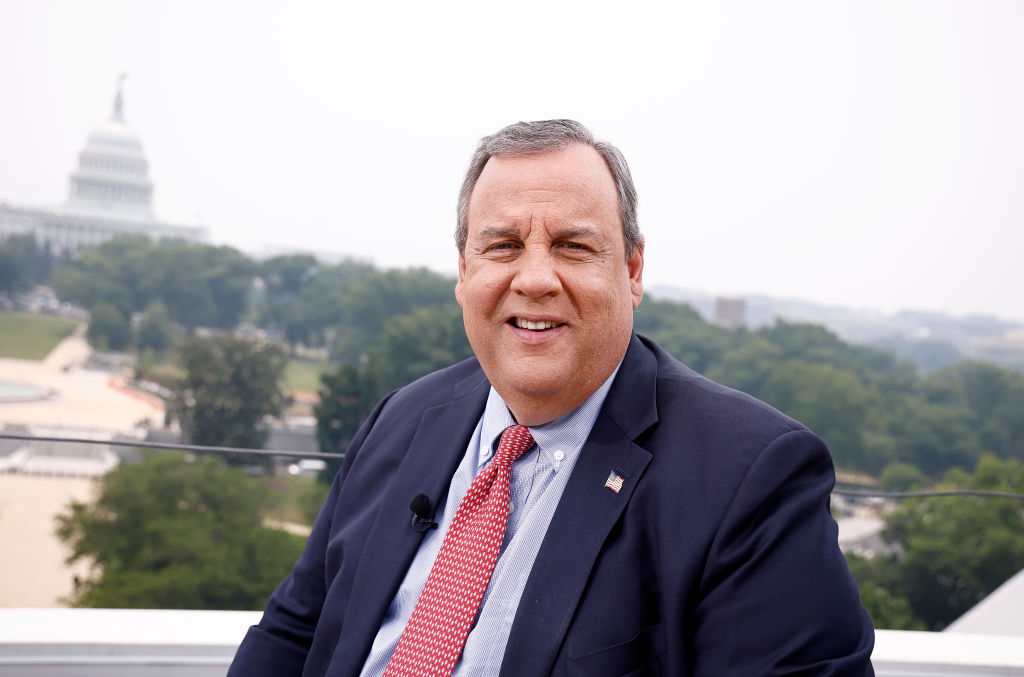

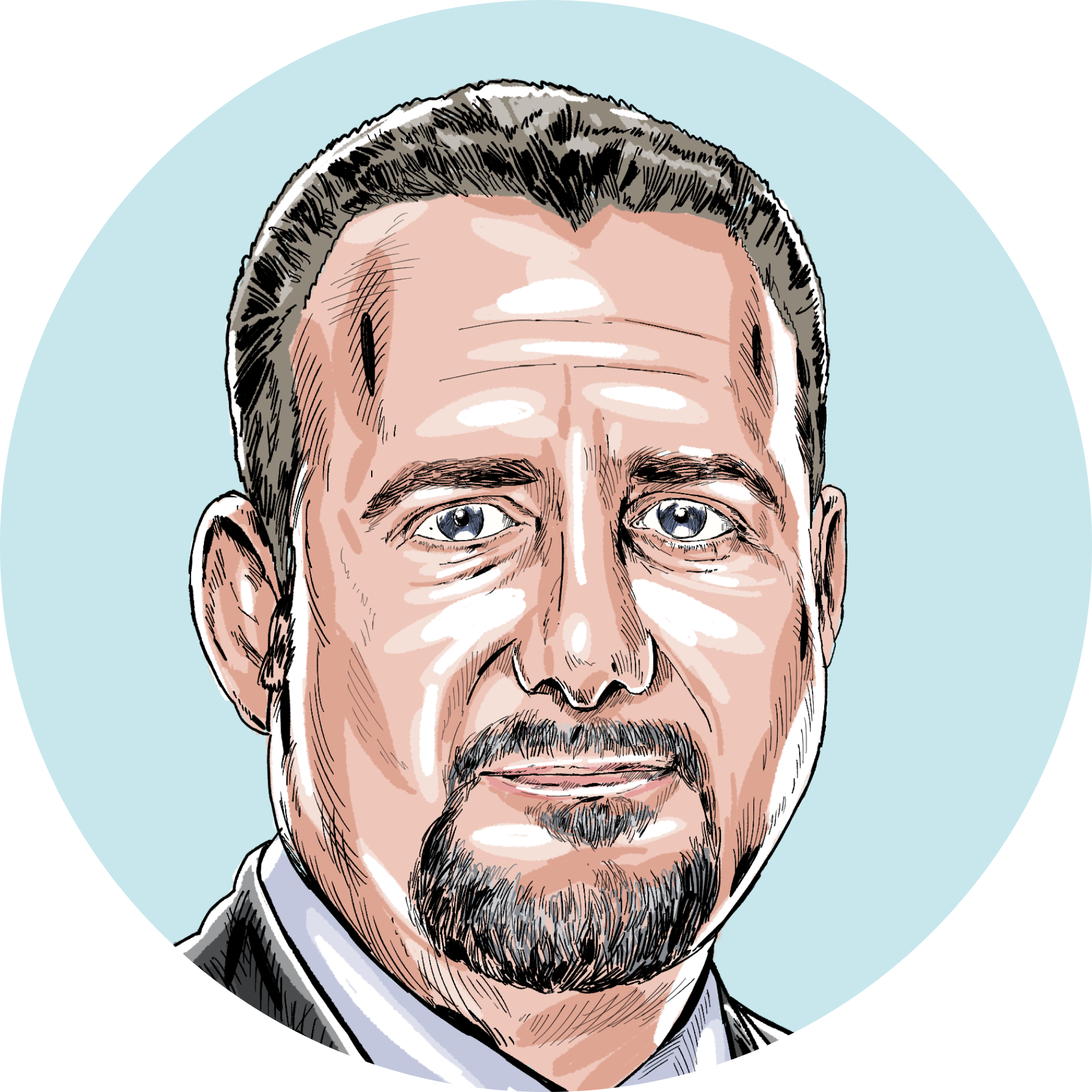


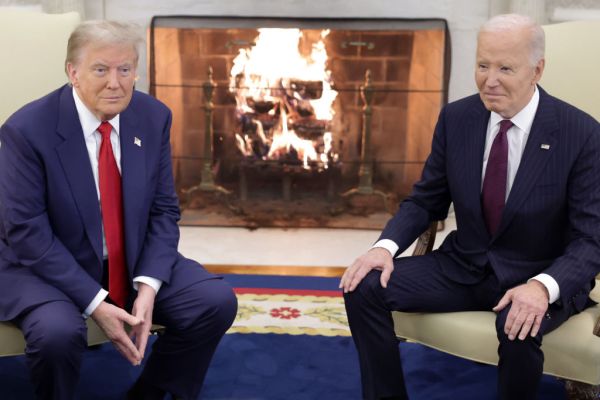
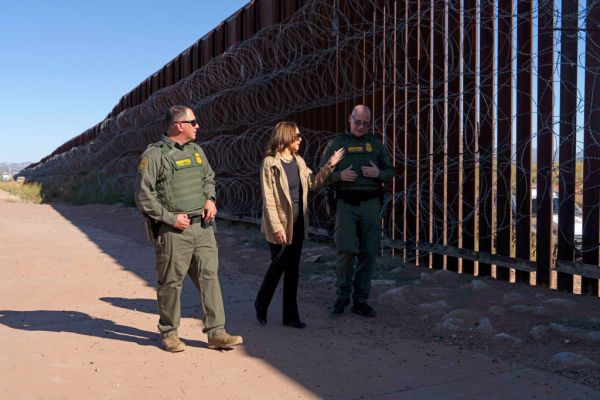
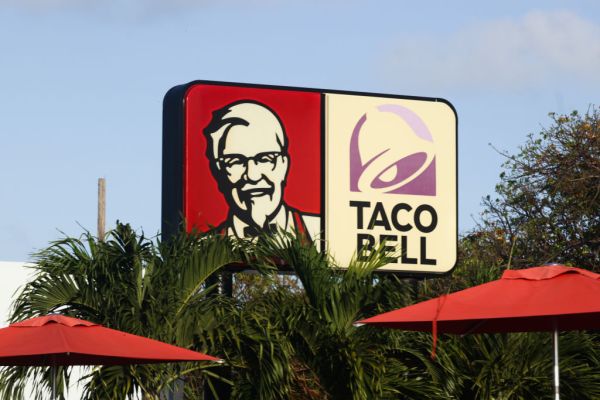




Please note that we at The Dispatch hold ourselves, our work, and our commenters to a higher standard than other places on the internet. We welcome comments that foster genuine debate or discussion—including comments critical of us or our work—but responses that include ad hominem attacks on fellow Dispatch members or are intended to stoke fear and anger may be moderated.
You are currently using a limited time guest pass and do not have access to commenting. Consider subscribing to join the conversation.
With your membership, you only have the ability to comment on The Morning Dispatch articles. Consider upgrading to join the conversation everywhere.